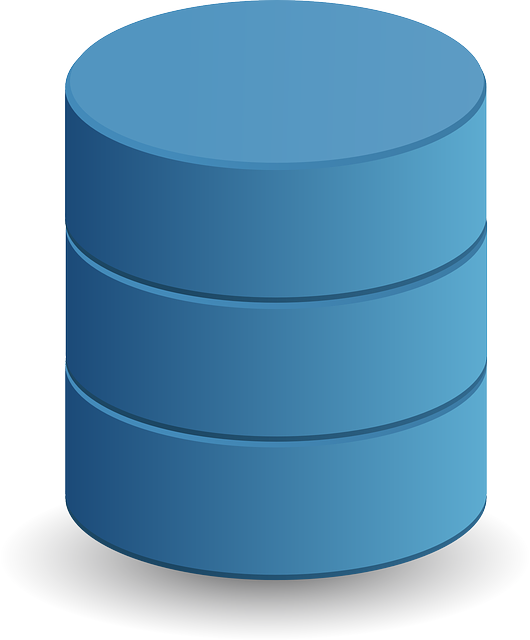Database? Warehouse? Lake? Let’s find your data champion!
Table of Contents
- Introduction
- The Database: Foundation of Structured Data
- The Data Warehouse: Unveiling the Powerhouse
- The Data Lake: Diving into the Unstructured
- Clash of the Titans: Database vs. Warehouse vs. Lake
- Conclusion
Introduction
In the rapidly evolving landscape of technology, data stands as the crown jewel, fueling innovation and progress across industries. It’s the lifeblood that drives decision-making, strategy, and growth. In this article, we embark on a journey through the intricate world of data management, focusing on the three major titans: Database, Data Warehouse, and Data Lake. Understanding these data repositories is crucial for any organization striving to thrive in this data-driven era.
Setting the Stage: The Data Revolution
The world has witnessed an unprecedented data revolution in recent years, with an explosion in the amount and types of data generated. From structured data neatly arranged in tables to unstructured data in the form of social media posts, images, and videos, the variety is staggering. This revolution is fundamentally altering how businesses operate, analyze, and harness insights to gain a competitive edge.
Why Data Management Matters
Effective data management is at the heart of this revolution. It’s the art and science of collecting, storing, organizing, and utilizing data to derive actionable insights. It ensures data quality, security, and accessibility, laying the foundation for informed decision-making, innovation, and efficiency.
The Database: Foundation of Structured Data

Databases are the bedrock of structured data management, providing a systematic way to store, manage, and retrieve information. Understanding databases is pivotal in comprehending the broader spectrum of data management.
Defining the Database
A database is a structured collection of data organized in a way that allows easy access, management, and updates. It’s akin to a digital filing system, where data is stored in tables made up of rows and columns.
Structure and Organization
Databases organize data into structured formats, enforcing rules that define relationships between pieces of information. This ensures efficient retrieval and maintenance of the data.
Querying and Transactions
One of the key features of a database is its ability to handle queries – requests for specific data from the stored information. Transactions, on the other hand, represent a set of operations treated as a single unit, crucial for maintaining data consistency.
Pros and Cons of Databases
Databases offer enhanced data integrity, security, and efficiency in data retrieval. However, they can be rigid and may struggle to handle unstructured or semi-structured data.
The Data Warehouse: Unveiling the Powerhouse
Data Warehouses are a specialized form of databases designed for comprehensive data analysis, providing a powerful platform for decision support.
Understanding Data Warehouses
A Data Warehouse is a centralized repository that allows for the consolidation of data from various sources within an organization. It’s optimized for complex queries and data analysis.
Data Aggregation and Analysis
Data Warehouses excel at aggregating vast amounts of data, often from disparate sources, and structuring it for efficient analysis. This enables businesses to derive meaningful insights and make informed strategic decisions.
Scalability and Performance
Data Warehouses are highly scalable, capable of handling large volumes of data and a high number of concurrent users without compromising performance. This scalability is vital as an organization’s data needs grow.
Advantages and Disadvantages of Data Warehouses
Data Warehouses empower organizations with valuable insights for strategic planning. However, they can be expensive to set up and maintain, making them more suitable for larger enterprises.
The Data Lake: Diving into the Unstructured
Data Lakes represents a paradigm shift in how organizations store and process data, especially unstructured and semi-structured data.
What is a Data Lake?
A Data Lake is a vast pool of raw data, stored in its native format without any predefined structure. It’s like a reservoir that holds all types of data until needed.
Flexibility and Raw Data Storage
Data Lakes offer unparalleled flexibility, allowing organizations to store data of any type, be it structured, unstructured, or semi-structured, without the need to design a schema upfront. It’s an ideal solution for businesses dealing with a wide array of data.
Processing and Analyzing Raw Data
Data Lakes facilitate advanced analytics, machine learning, and AI applications by enabling the processing and analysis of raw data directly within the lake. This can lead to valuable insights and innovation.
Benefits and Drawbacks of Data Lakes
Data Lakes provides a cost-effective solution for storing massive volumes of data and enables advanced analytics. However, the lack of structure can lead to challenges in data quality and governance.
Clash of the Titans: Database vs. Warehouse vs. Lake
In this section, we’ll dive into the comparison of Database, Data Warehouse, and Data Lake, exploring when to use each and the integration possibilities.
Use Cases and Scenarios
Each of these data storage solutions caters to specific use cases. Understanding these use cases is crucial in making an informed decision.
When to Use a Database
Databases are ideal for transactional systems and applications that require structured data, ensuring high data integrity and ACID compliance.
When to Opt for a Data Warehouse
Data Warehouses shine when it comes to complex data analysis and reporting. They’re tailored for business intelligence and decision-making processes.
When a Data Lake Makes Sense
A Data Lake is the go-to choice when dealing with massive amounts of raw data of varying types. It’s a strategic asset for advanced analytics and big data applications.
Integration and Hybrid Approaches
In some scenarios, integrating these solutions in a hybrid model can be the most effective approach, harnessing the strengths of each to create a comprehensive data strategy.
Making the Right Choice for Your Needs
Selecting the appropriate data management solution is a critical decision that should align with your organization’s goals, data types, and analytical requirements.
Conclusion
Navigating the data terrain of databases, data warehouses, and data lakes is a crucial task for any organization seeking to leverage the power of their data. A balanced approach, leveraging the strengths of each of these data titans, can significantly impact an organization’s ability to innovate, make informed decisions, and remain competitive in today’s data-driven world. So, craft your data strategy wisely, considering the unique needs and aspirations of your business.




I want to know more about databases, SQL theory
Sure. Will be posting soon